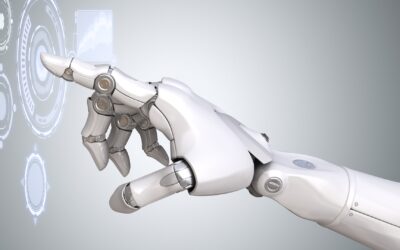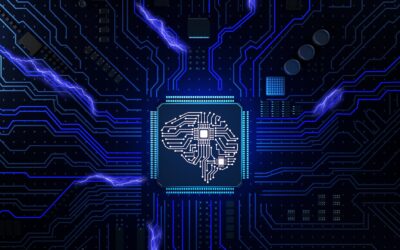The topic of Artificial Intelligence is not a new one, but it continues to play a leading role in how Industry 4.0 is evolving. The most important discussion to have at this point is about how severe AI’s impact will be on businesses and their employees, and to best prepare for that reality.
With the recent COVID-19 shutdown as a new X-factor, we have what can be called an accelerator, as many businesses were forced to rely on fewer employees, and turned to AI to get things done.
Jason Mars — a technologist and professor of computer science at University of Michigan, and co-founder of the AI startup Clinc — has seen the impact of AI up close, and he says AI is now a permanent part of the playbook for many businesses as we emerge from COVID-19’s shadow.
“Many companies, out of necessity, had to grow more comfortable with embracing the benefits of AI to compensate for a reduced workforce. They can and will continue to do so, and they may not need to rehire all the people they laid off during the pandemic,” Mars explained. “The process automation and data analyzing ability of AI has been discovered by businesses across key industries — including automotive, finance, healthcare, and bioscience.”
Process automation via AI can take months off the development of key technologies for autonomous vehicles, for example. And AI is already widely used for customer service. In the post-COVID landscape, many businesses are facing leaner budgets, and have little choice but to grow their use of AI for cost-cutting purposes.
Here’s the reality of what we may see unfold in the coming months and years:
- To stem financial impacts, companies that have previously been holding back will increase AI efforts to save on costs and improve efficiency.
- This will inhibit the job market’s regrowth, and force workers to be retrained in new skills that are more relevant
“The rules of biology apply here,” Mars said. “Humans had tails at some point in our evolution, then we lost them once they no longer were required for our balance. Anything that is no longer needed will soon disappear. And once the tail falls off, it’s not coming back”
The move to AI will not happen overnight. And even amid cost-cutting, companies will want to hold on to their best workers and keep that talent in-house.
This undeniable growth of AI presents an opportunity for workers to think proactively about how they can remain an essential component even after the growth of AI in their industry. In the best-case scenario, AI could take over the menial mental labor, and leave the more meaningful work to creative minds.
Limiting Economic Impact
Some of our worst economic downturns of the past have been caused by an inability to retrain workers amid difficult times when jobs were being shed. With that history in mind, our nation (and the world) can avoid severe economic calamity by learning from these past failures.
We must be smart about how we adapt to AI, recognizing that it will have some impact on jobs but also playing offense by engaging in a well thought-out strategy for retraining workers to best complement AI.
“Some of this adaptation can come from workers and individual companies, but it’s also critical to tackle this at a higher level. Our experts and leaders at the state and national levels study how AI is going to impact the workforce, so they can implement proper steps to retrain workers and limit economic impact,” Jason Mars said.
There’s no turning back the clock, and AI is here to stay, so the key to long-term success for America’s economy and its workers is how we anticipate what that means, how we adapt to those realities, and how we best position ourselves for this new reality.
Mike Szudarek leads Marx Layne & Company’s automotive practice and has more than two decades of experience counseling clients in the automotive and technology sectors. He previously served with a Fortune 500 company and has been on both the corporate and agency side of the communications business, understanding first-hand the many issues and challenges businesses face. He has experience working with OEMs, Tier 1 suppliers, and aftermarket industries, in addition to a specialization in mobility and autonomous driving. Szudarek holds memberships with the Automotive Press Association and the Public Relations Society of America. Marx Layne & Company has over three decades of experience guiding businesses large and small through crises.




